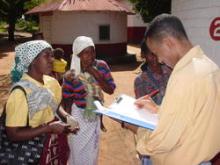
Reliable and timely information on cause-specific mortality is a critical part of identifying emerging health problems and a fundamental component of evidence-based health policy development, implementation, and evaluation. Efforts to measure population-level impact of global epidemics, including HIV/AIDS, and develop effective responses are complicated by a lack of dependable mortality data in countries with the highest burden of disease.
This course will provide participants with a basic understanding of the importance and usefulness of mortality data and introduce a range of approaches to collecting such data. The advantages and limitations of the various methods will also be discussed.
Objective
After successfully completing this course, learners will be able to:
- List reasons for using mortality surveillance data
- Describe prominent models for obtaining mortality surveillance data
- Understand the advantages and limitations of each collection type and begin to identify which work best under certain circumstances
- Understand the uses of mortality surveillance data in developing and evaluating programs and/or policies
- Recount examples of successful collection of mortality surveillance data
Credits
Collaborating organizations involved in the development of Mortality Surveillance Methods & Strategies include:
- David Davies-Deis, Johns Hopkins University Center for Communication Programs
- Renee Lewis, U.S. Census Bureau
- Loraine West, U.S. Census Bureau
We would also like to acknowledge the following technical reviewers for their valuable input:
- Stirling Cummings, MEASURE Evaluation/University of North Carolina
- Robert Mswia, MEASURE Evaluation/Futures Group International
Time
- 2 hours
Published/Updated
- Thursday, December 1, 2011
